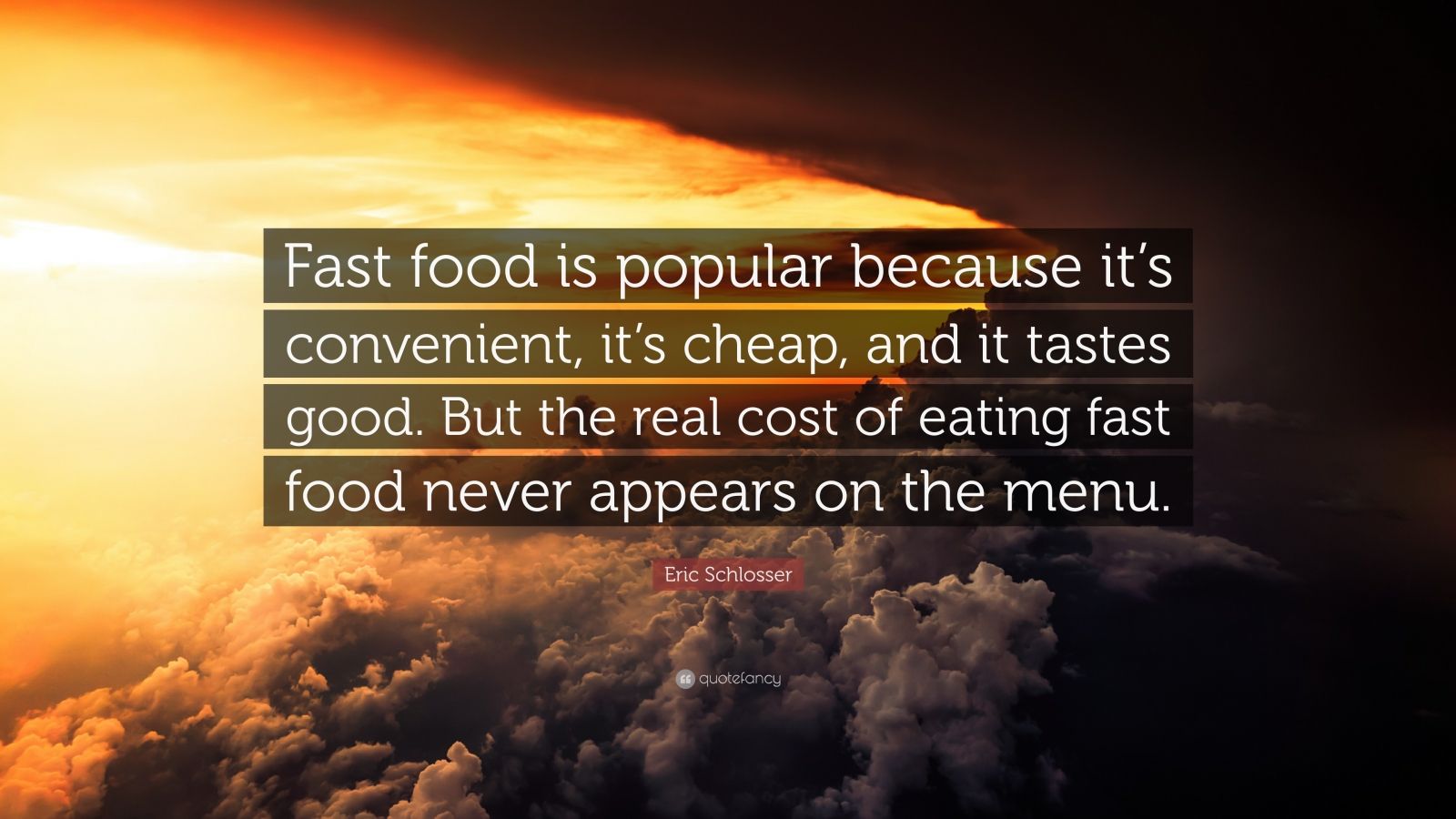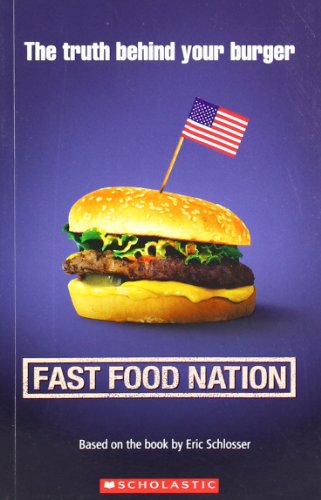

They have opposed every attempt to raise the minimum wage over the past two generations. They have tried to ensure high turnover rates among their workers to discourage unionisation. Fast food companies have long hired teenagers to perform mindless and interchangeable tasks that do little to teach job skills or build self esteem. He saves his most scathing indictment, however, for the industry's treatment of its workers. Schlosser accuses the fast food industry of many things: advertising to children, selling meat tainted with deadly bacteria, and playing a leading role in the nation's obesity epidemic. Ray Kroc, a salesman from Illinois, then bought the rights to franchise the company, and soon McDonald's restaurants were opening all across the nation, bringing with them a technique of production and a way of life that have come essentially to define postwar America. Tasks were broken down such that one person was assigned to do one task all day long-the principles of the assembly line applied to the restaurant kitchen. They revolutionised the restaurant industry by introducing techniques and equipment that almost totally eliminated the need for skilled labour. Schlosser traces the origins of modern fast food to southern California in the late 1940s, when Richard and Maurice McDonald opened the first McDonald's restaurant in San Bernardino. The portrait that he paints from these varied encounters is of a nation-and increasingly a world-where economic and social policies have been radically altered to accommodate the manufacture and consumption of fast food. And, of course, he went to the fast food restaurants themselves, where underage employees follow the dictates of cooking machines and cash registers that tell them exactly what to do. He went to the school districts that are trying to make ends meet by allowing fast food companies to advertise in their classrooms and sell food in their cafeterias.

He went to the meatpacking plants that dot the Great Plains, where legions of undocumented Hispanic workers risk life and limb daily to earn a meagre living. Schlosser, a writer for Atlantic Monthly, spent two years delving into virtually every corner of this sprawling and pervasive industry.

“In 1970, Americans spent about $6 billion on fast food in 2000, they spent more than $110 billion,” the book begins. Rating: ★★★★Īccording to Fast Food Nation, Eric Schlosser's exhaustive account of the fast food industry in the United States, Americans spend more on fast food than on movies, books, magazines, newspapers, videos, and recorded music-combined.

Fast Food Nation: What the All-American Meal is Doing to the World by Eric Schlosser.


 0 kommentar(er)
0 kommentar(er)
